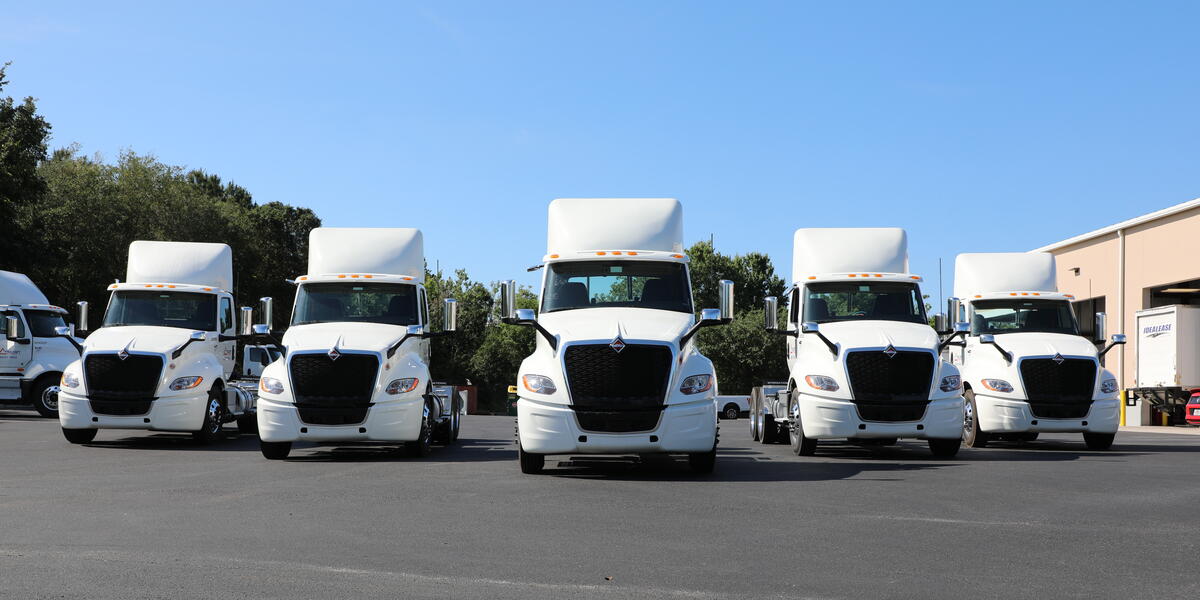As is customary during the final year of an administration, we anticipate introducing several new regulations before the upcoming fall election. Let's explore the proposed changes:
-
Meal and Rest Break Preemption
In 2018, FMCSA preempted California’s meal and rest break rules as applied to CMV drivers in interstate commerce (30-minute meal break after 5 hours of work and 10-minute rest break after 4 hours of work).
In 2020, FMCSA preempted Washington’s similar MRB rules as well.
The U.S. Court of Appeals for the 9th Circuit affirmed the California preemption determination on January 15, 2021; case challenging the Washington preemption determination was withdrawn.
As of now, drivers subject to the FMCSA hours of service regulations need not comply with either the California or Washington MRB rules.
About 18 other states have some type of MRB rules that are also currently not enforced against CMV drivers.
-
Speed Limiting Device Rulemaking
FMCSA issued May 4, 2023, Advance Supplemental Notice of Proposed Rulemaking to proceed with rule on speed limiting devices for motor carriers operating CMVs in interstate commerce with a GVW of 26,001 pounds or more.
Rule would apply to vehicles equipped with electronic engine control unit capable of governing the maximum speed be required to limit the CMV to a speed to be determined by the rulemaking and to maintain that ECU setting for the service life of the vehicle.
Notice does not set out the proposed maximum speed.
NPTC filed comments stating we are opposed to a nationwide uniform speed limit due to variances in geography, road conditions, traffic congestion, but we support vigorous enforcement of posted speed limits.
New proposed rule supposed to be issued with May 2024 target date in DOT semiannual agenda.
-
Safety Fitness Determination Rulemaking
In an August 2023 Advance Notice of Proposed Rulemaking, FMCSA sought information on how it might use data and resources more effectively to identify unfit motor carriers and to remove them from operating CMVs.
FMCSA asked for information about the use of available safety data, including inspection data, in determining carrier fitness to operate; possible changes to the current three-tier safety fitness rating structure; and the list of Federal Motor Carrier Safety Regulations that it uses in its safety fitness rating methodology.
NPTC filed comments asking FMCSA to keep the “conditional” rating and to expand the data used in evaluating carriers.
The agency is now planning to issue a Notice of Proposed Rulemaking in June 2025
-
Automatic Emergency Braking Rulemaking
FMCSA and National Highway Traffic Safety Administration plan to issue a Final Rule in April 2024 to require and/or standardize equipment performance for automatic emergency braking (AEB) systems on heavy trucks.
The rulemaking will establish performance standards and motor carrier maintenance requirements for AEB systems on heavy trucks and accompanying test procedures for measuring the performance of the AEB systems in NHTSA compliance testing.
NHTSA and FMCSA have engaged in a national outreach, educational, and awareness campaign, and data collection analysis which included training materials for fleets, drivers, and maintenance personnel related to AEB technology.
-
Automated Driving Systems Rulemaking
FMCSA intends to issue a Notice of Proposed Rulemaking in 2Q 2024 to amend certain Federal Motor Carrier Safety Regulations to provide for the safe introduction of automated driving systems (ADS)-equipped commercial motor vehicles onto public roadways.
The proposed changes will affect CMV operations, inspection, repair, and maintenance regulations and will recognize the difference between human operators and ADS.
FMCSA held listening sessions beginning in 2017 and published a 2018 request for comments on which of its regulations might be a barrier to the safe testing and use ADS-equipped CMVs.
There is a need for federal regulations to prevent non-uniform state regulations from impeding ADS development.
-
Oral Fluid Samples for Drug Testing
On May 2, 2023, DOT issued final rule to allow use of oral fluid samples (saliva) for drug testing—will apply to all modes of transportation. DHHS has determined testing of oral fluids as reliable as urine testing. But all collections of oral fluids are observed—less chance for substituted or adulterated samples. Oral fluid testing will be an alternative to urine sample testing—employer option. Rule provides methods for dealing with “dry mouth,” similar to shy bladder. Rule cannot be implemented until DHHS certifies at least two labs for oral fluid testing, however (one for testing initial sample and another for testing split sample)—no deadline for certification but expected soon.
-
Hair Samples for Drug Testing
On December 23, 2022, FMCSA denied a request for an exemption to use hair samples as an alternative to urine testing in DOT drug tests—exemption would have allowed carriers to post positive test results to DACH.
Hair testing is considered more accurate than urine testing and produces more positive results.
FMCSA denied the exemption not because it disputed the arguments but because Department of Health and Human Services has not finalized its guidelines for hair testing in federal drug testing programs.
Proposed DHHS guidelines were published in Sept 2020; final procedures expected in near future; again, no deadline.
-
CDL Flexibility Proposal
FMCSA has issued a Notice of Proposed Rulemaking to increase flexibility for State Driver Licensing Agencies and commercial driver’s license applicants in several ways; the proposal would:
- Expand applicants’ ability to take a CDL skills test in a State other than their State of domicile;
- Permit a commercial learner’s permit (CLP) holder who has passed the CDL skills test to operate a CMV on public roads without having a qualified CDL holder in the passenger seat;
- Eliminate the requirement that an applicant wait at least 14 days to take the CDL skills test following the initial issuance of the CLP; and
- Require that third-party knowledge examiners be subject to the training, certification, and record check standards currently applicable to State knowledge examiners and third-party knowledge testers be subject to the auditing and monitoring requirements now applicable to third-party skills testers
-
18–20-Year-Old Driver Pilot Program
Safe Driver Apprenticeship Pilot program allows 18–20-year-old drivers to operate CMVs in interstate commerce under certain controlled conditions (no hazmat, e.g.)
3-Year pilot will collect data to determine if FMCSA could adjust the 21-year-old minimum driving age
The pilot was mandated by Congress in the 2021 Infrastructure Investment and Jobs Act
To date, however, only a handful carriers are participating in the program.
Congress believed the shortfall in participants is because the FMCSA added requirements to the program that were not in the statutory mandate, including registration with the Department of Labor’s apprenticeship program and use of inward-facing cameras in all vehicles used in the pilot program.
Congress removed these requirements in 2024 DOT appropriations act.
-
NHTSA Trailer Underride Retrofit Requirement
March 14, 2024
The National Highway Traffic Safety Administration (NHTSA) Advisory Committee on Underride Protection (ACUP) will recommend to Congress that any trailer built since 1998 meet the Insurance Institute for Highway Safety (IIHS) ToughGuard standards.
(above proposed regulation information provided by the National Private Truck Council (NPTC)
CVSA’s International Roadcheck Is Scheduled for May 14-16
The Commercial Vehicle Safety Alliance’s (CVSA) International Roadcheck is scheduled for May 14-16. International Roadcheck is a three-day, high-visibility initiative across Canada, Mexico, and the United States, focusing on commercial motor vehicle inspection and regulatory compliance enforcement.
CVSA-certified law enforcement personnel will inspect commercial motor vehicles and drivers at weigh/inspection stations, temporary sites, and mobile patrols to ensure compliance with federal, state, provincial, or territorial regulations. Data collected during the 72-hour period will be analyzed and results released this summer.
This year, International Roadcheck will spotlight two areas: tractor protection systems and alcohol and controlled substance possession. Controlled substance and alcohol use remains a significant concern, with an increasing number of prohibited drivers listed in the U.S. Drug and Alcohol Clearinghouse (DACH), posing a threat to road safety.
Focusing on tractor protection systems aims to raise awareness among drivers, motor carriers, technicians, and enforcement personnel regarding critical vehicle components such as the tractor protection valve, trailer supply valve, and anti-bleed back valve. These components, often overlooked during inspections, are crucial for safety. To aid in proactive assessment and maintenance, CVSA has provided an inspection bulletin outlining the steps for proper checks, available in French and Spanish.
During International Roadcheck, inspectors will conduct routine North American Standard Level I Inspections, a comprehensive 37-step procedure examining vehicle components and driver documentation.
For more information on Roadcheck 2024, visit: [https://www.cvsa.org/news/2024-international-roadcheck/]








